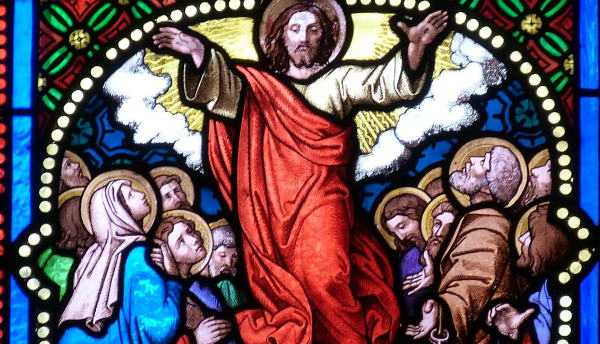Jesus wants his grace to touch every human heart. He wants to lead every person out of the darkness of sin and frustration and into the spiritual light and fulfillment of his kingdom. God “wills everyone to be saved and to come to knowledge of the truth” (1 Tim. 2:4).
Preparing Hearts for the Lord
Only his grace can work that redemption and pour the Holy Spirit into human hearts. Yet Jesus wants us to be the heralds who announce the Good News of his salvation and so open hearts to receive that grace. This is how he arranged things during his own earthly ministry, and that set the pattern for the rest of human history: “After this the Lord appointed seventy-two others whom he sent ahead of him in pairs to every town and place he intended to visit” (Luke 10:1).
Jesus intends to visit “every town and place” himself. He truly is the Savior, and unless he enters a heart, his kingdom cannot come there. Unless his presence in a heart deepens and expands, his kingdom cannot grow there. But he sends his disciples “ahead of him” to prepare the way, to be messengers of his kingdom and channels of his saving and sanctifying grace. When he commands us to “love your neighbor as yourself,” he points out which “town and place” he wants us to go and prepare for him: all the hearts that are within our own actual and potential circles of influence.
Bonum Est Diffusivum Sui
Have you ever noticed that evil is contagious? As the old saying goes, one bad apple spoils the bunch. Sociological studies have explored the influence of “bad apples” in the workplace, finding statistical evidence that even one employee with a habitually sour attitude has a disproportionately negative effect on the entire workplace atmosphere. If you have children, you are keenly aware of the destructive effects that can flow from them hanging out with the wrong kind of peers. Even St. Paul identifies and applies this principle, quotingan ancient proverb: “Do not be led astray: ‘Bad company corrupts good morals’” (1 Cor. 15:33).
But the contrary is also true; goodness is also contagious. An old Latin saying puts it concisely: Bonum est diffusivum sui (“Goodness always tends to spread”). If you are a teacher or a coach, you always want students or players who work hard and build up the rest of the class or team. If you are a parent, you want your children to spend time with good kids, knowing this will have a good influence on them.
Jesus’s famous images of what a Christian is called to be, which we have already reflected on, invoke this principle. He tells his followers they are “the salt of the earth” and “the light of the world” (Matt. 5:13–14). A little bit of salt flavors a whole plate of food and preserves a much larger cut of meat. One small candle or one small lightbulb can illuminate an entire room and be seen through a window from far away. The goodness and grace that we receive from Christ always tends to spread out and touch those around us — bonum est diffusivum sui.
The neighbors we are commanded love, therefore, are first of all every person we come into contact with. Wherever God’s providence sends us, whatever lives we touch, we can season them with love, being a blessing to them in small ways or big ways.
+
This article is adapted from a chapter in 60 Days to Becoming a Missionary Disciple by Fr. John Bartunek, which is available from Sophia Institute Press.
Art for this post on Neighbors: Cover and featured image used with permission.





